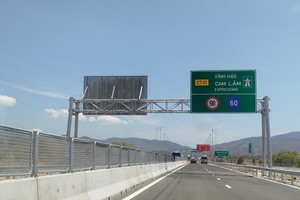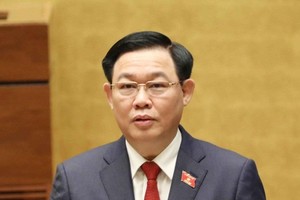The World Bank (WB)’s Board of Directors April 6 approved a second loan for Vietnam from the International Bank of Reconstruction and Development (IBRD) to support poverty alleviation, healthcare and critical infrastructure development in traditionally vulnerable northern areas, the Red River Delta and Ho Chi Minh City.
The board also affirmed Vietnam’s “remarkable” progress towards Middle Income Country status.

Concrete past results have underpinned the approval of the new projects. The first Northern Mountains Poverty Reduction Project, for example, helped double incomes for participating households from VND4,300,000 (US$226) before the project was implemented, to VND10,600,000 ($557) at completion in 2007.
Under the first phase of this project, more than 350,000 households benefited from improved healthcare, and over 118,000 households received access to clean water, significantly improving the health of local people.
“Vietnam’s development story is an inspiration for countries beyond East Asia,” said Jim Adams, World Bank vice president for the East Asia Pacific region. “The challenge now is to ensure quality growth and stabilize the macro-economy.
The bank’s programs in infrastructure and human development will support important reforms in improving efficiency, sustainability and cleaner growth in the short term, while creating necessary conditions for longer term growth.”
The WB has approved five projects including one related to Vietnam’s power sector and four others to support poverty alleviation, healthcare and critical infrastructure development.
The first of the new projects funded by the WB, the “Second Northern Mountains Poverty Reduction Project,” worth $150 million, aims to benefit Vietnam’s poorest ethnic minority areas through improving and diversifying their livelihoods. It will give locals better access to productive infrastructure, innovative businesses, improved agricultural productivity and employment.
Moreover, the project will help build capacity of local governments and communities to plan, manage and implement livelihood improvement programs in ethnic minority localities.
The second project, “Central North Region Health Support,” worth $65 million, aims to increase health coverage for the poor in north-central areas. District hospitals, preventive health centers, and medical teaching colleges will also be improved, while more training will be provided for medical practitioners.
The third project, “Ho Chi Minh City Environmental Sanitation Project Additional Financing,” worth $90 million, targets building a 335km drainage system in the city’s business center to control annual flooding, increase collection of wastewater in an environmentally and financially sustainable manner, and provide flood relief to 240,000 households. The project also aims to prevent infrastructure damage to benefit over one million people.
The “Red River Delta Rural Water Supply and Sanitation” project, worth $65 million, is designed to build infrastructure for sanitation and water supply that will benefit 800,000 people. It will also support better hygiene in 120 targeted communities while helping the Government build sustainable rural water supply schemes with tariffs set at a level sufficient to cover operations, maintenance and debt service.
The fifth project, “Power Sector Reform Development Policy,” worth $312 million, is organized around four main policy areas essential to the reform of Vietnam’s power sector. Accordingly, the plan involves developing a competitive power market, restructuring the power sector to offer customers more service choices, electricity tariff reforms to attract new investors, and improving energy efficiency.
























